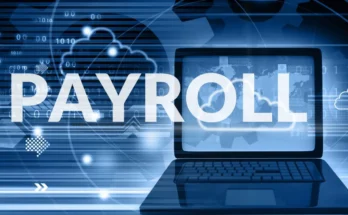The era of independence is now. Nobody wants to be dependent on anyone, not even high school kids or elderly retirees. They feel empowered and accomplished when they become self-sufficient. But is the urge for independence limited to personal life? Does that constitute the full extent of freedom? How about at work? People also want to feel empowered at work, don’t they? Indeed. They do desire to feel empowered at work, yes. The key question here is, however, how and—more importantly—why to empower employees at work.
How Can an Employer Give His Workers More Power?
Some suggestions that address the “How” portion of the above-posed issue are provided below. The employer can emancipate their workers in the workplace in these ways.
Be receptive to their thoughts and viewpoints.
Let’s look at our younger selves as an example. We were in a really confusing situation in the family back when we were in our early teens. Numerous decisions in the family were made without consulting you. “You are too young to say anything about it,” was probably said to you at least once when you attempted to voice your views. Didn’t we feel a little discouraged? We felt a sense of connection when our thoughts were sought out and appreciated a few years later, when we were in our late teens, don’t you think? The same is true for your staff. Their loyalty to the organization is increased and they feel included when you listen to their thoughts, opinions, suggestions, and comments.
Don’t hesitate to express gratitude.
It is imperative that the staff members comprehend their significance inside the company. It makes sense that someone would feel empowered and want to offer even more to the cause when they realize how important they are to the growth of the organization. A small gesture of sincere appreciation for an employee can make a big difference! Never hesitate to express your gratitude and admiration for their dedication to the company.
Employee Self-Service Technologies in Hype
Keeping accurate personnel records at all times requires a great deal of red tape to be fulfilled within the company. Employees must rely on the human resources department as a result. Workers must also rely on the HR department to inform them of their leave balance or the status of their applications (leave, attendance, or otherwise). Employees’ and human resources’ mental health may be impacted by such dependency on staff in HR departments.
Software that offers Employee Self Service (ESS) is used by many companies to help them empower their workforce. APIs are used by other businesses that do not utilize software that has built-in ESS integration to connect to the ESS portals. Employees no longer need to wait for the manager to verify the status of their submitted applications or rely on the HR managers to upload or update their papers if we use ESS as an example in payroll and employee activity monitoring software such as Controlio.
Because the entire payroll process is automated, there is no possibility of errors. Employees can also create their pay stubs, check their leave balance, acquire their schedules, and regularize their attendance. They are free to complete this whenever it is most convenient for them. This is more akin to a full HR transformation, freeing up the HR managers’ time to concentrate on more important concerns.
Combining It
The process of empowering your staff is like taking a vacation. It is necessary, but you are unaware of it until you put it to use. Accredited workers are more likely to be content with their jobs and produce more, which benefits the company even more. The organization must, however, consider all the variables before making a final decision about employee empowerment. These elements include the company’s training capability, money, scale, and ability to integrate. However, in order to thrive in the modern market, employees must be freed from their constraints and allowed to do the more routine and subtle responsibilities within the company.



